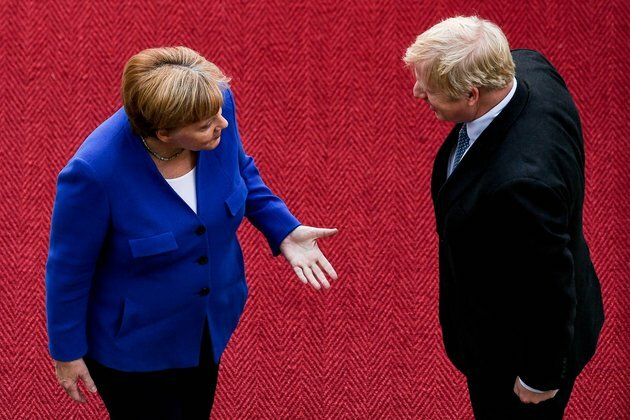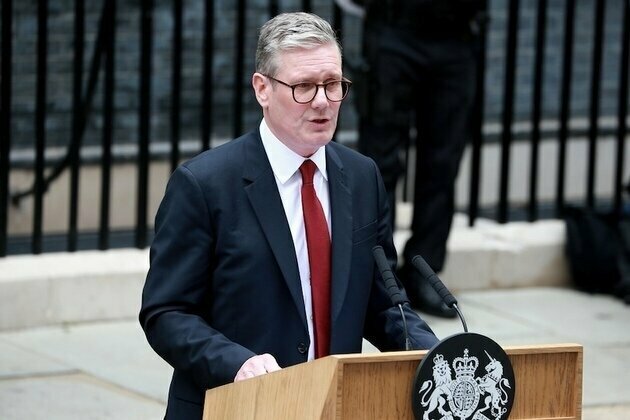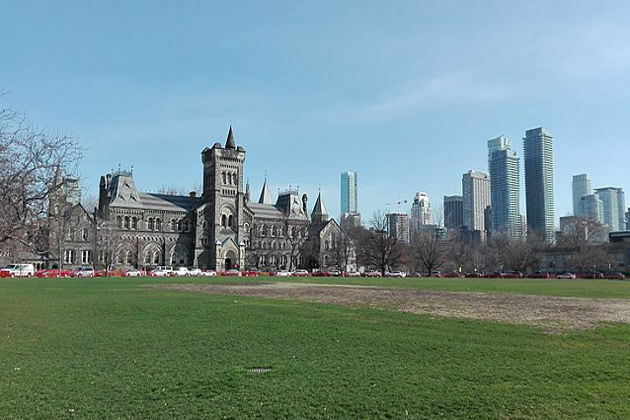Brexit: what will the EU's next move be?
The Conversation
12 Sep 2019, 17:57 GMT+10

The latest political drama and developments surrounding Brexit in the UK have had a distinctly domestic focus. There has been little consideration of the other side in the Brexit negotiations.
The UK's prime minister, Boris Johnson, claims he can reach a new deal with the EU27 at the next European Council meeting on October 17 and 18 with very little discussion about how the EU might respond. Even the British bill demanding he seek a Brexit extension if he fails to strike a deal has been adopted by parliament without considering that the EU simply might not grant him one.
London is signalling renewed energy and momentum and a commitment to up the tempo in the negotiations with the EU. But that contrasts significantly with claims from Brussels that no real negotiations have taken place since Johnson entered Number 10, despite the EU's continued readiness to engage.
While positive political statements by French president Emmanuel Macron and German chancellor Angela Merkel can influence the pace and direction of negotiations, no real progress will be made without concrete proposals from the UK, particularly on the contentious issue of how to avoid a hard border on the island of Ireland.
The EU has repeatedly made it clear that a backstop solution for the Irish border, which will only come into effect unless and until it is superseded by a new agreement, is indispensable. The EU has also stressed that it will not reopen talks on the 600-page withdrawal agreement, which was the result of one-and-a-half years of intense negotiations between the EU and the UK. Furthermore, it is wholly committed to maintaining the integrity of the single market. With all this in mind, what might the EU's next moves be?
Nobody wants no deal
Although significant preparations for a no-deal Brexit have taken place across the EU, it wants to avoid such a scenario - up to a point. It will therefore seriously consider any proposal presented by the UK to reach a deal.
One proposal hinted at is an all-Ireland solution, whereby Northern Ireland remains more closely aligned to the regulatory framework and customs territory of the EU. Given that this was the initial proposal for the backstop - before it was rejected by the DUP and changed to incorporate all of the UK, the EU would most likely agree to this. But before it can be discussed, the proposal needs to be detailed and presented formally by the UK.
The prime minister would also have to convince the EU that this deal could be ratified domestically - something that is far from certain, given the political sensitivities of having a border down the Irish Sea. Yet, at this stage, if the UK is serious about wanting a deal, it needs to concentrate its efforts on options that are acceptable to the EU.
If - and this is a big "if" - a political deal were to be reached at the European Council meeting in October, there is very little time for both sides to formally give it the green light in time for the current deadline of October 31. Even if the EU has, so far, acted swiftly in relation to Brexit, the actual process of getting member states and the European Parliament to ratify the deal will have to happen in an extremely tight timeframe to meet the deadline.
That raises the question of whether to grant an extension and how long it should be. The bill that recently passed in the UK parliament provides a way of avoiding a no-deal scenario in the short term. Either an agreement is reached and only a short technical extension is required or no agreement is reached and Johnson has to ask for an extension until January 31 2020.
The short technical extension for ratification purposes is unlikely to be controversial. From a domestic UK perspective, the longer January date would allow time for a general election that could potentially change the arithmetic in Parliament.
But how will the EU respond to such an extension request? It has previously granted extensions but has, each time, rejected the lengths originally proposed by the UK. The UK's first request for an extension from March 29 to June 30 2019 was shortened to April 12 to ensure a UK exit prior to the European Parliament election campaign. And its second request for an extension to June 30 was lengthened to October 31, to allow for meaningful progress on negotiations instead of just more time debating the same agreement in the UK, and to see Brexit concluded before the new Commission takes office on November 1 2020.
There are strong reasons for why the EU might be hesitant to agree to yet another extension. The 27 member states and the EU institutions have spent an enormous amount of time, energy and financial, administrative and political resources on dealing with Brexit - and they want to move on. The extensions granted so far have led to little progress on the UK side. And the levels of trust and patience with the UK are declining.
Yet, the EU does not want to be the one responsible for causing a no-deal exit. It is in its interest to have a deal, as it reduces the uncertainty following from Brexit, and provides a solid base from which to start negotiations on the future EU-UK relationship. It would also be difficult for the EU to refuse an extension if its purpose is for the UK to engage in a democratic exercise, such as holding a general election. As a result, the EU is most likely to agree to an extension. The question is until when?
Author: Magdalena Frennhoff LarsУТЉn - Lecturer in Politics, University of Westminster 
 Share
Share
 Tweet
Tweet
 Share
Share
 Flip
Flip
 Email
Email
Watch latest videos
Subscribe and Follow
Get a daily dose of Belfast Bulletin news through our daily email, its complimentary and keeps you fully up to date with world and business news as well.
News RELEASES
Publish news of your business, community or sports group, personnel appointments, major event and more by submitting a news release to Belfast Bulletin.
More InformationNorthern Ireland
SectionAmazon still trails UK grocers on fair supplier treatment
LONDON, U.K.: Amazon has once again been rated the worst major UK grocery retailer by its suppliers when it comes to following fair...
Zero-dose children in India declined from 0.11% in 2023 to 0.06% in 2024: Union Health Ministry
New Delhi [India], June 28 (ANI): The percentage of zero-dose children (Those who have not received a single vaccine) in India has...
Pound 250,000 fund launched to help unlock environmental and economic opportunities for layer manure
Pound 250,000 fund launched to help unlock environmental and economic opportunities for layer manure Date published: ...
Lyons welcomes start of works on Pound 70m Queen's Parade project
Lyons welcomes start of works on Pound 70m Queen's Parade project Date published: 30 June 2025 ...
DAERA gets green light for legislation to support local fruit and veg growers
DAERA gets green light for legislation to support local fruit and veg growers Date published: 30 June 2025 ...
Proscribing Palestine Action: Questions and Issues for the UK
Lee Jarvis and Tim Legrand Download PDF Jun 27 2025 0 viewsfredduval/Shutterstock The UK governments proposal to ban the group...
International
SectionFox faces $787 million lawsuit from Newsom over Trump phone call
DOVER, Delaware: California Governor Gavin Newsom has taken legal aim at Fox News, accusing the network of deliberately distorting...
DeepSeek faces app store ban in Germany over data transfer fears
FRANKFURT, Germany: Germany has become the latest country to challenge Chinese AI firm DeepSeek over its data practices, as pressure...
Canadian option offered to Harvard graduates facing US visa issues
TORONTO, Canada: Harvard University and the University of Toronto have created a backup plan to ensure Harvard graduate students continue...
Israel should act fast on new peace deals, Netanyahu says
JERUSALEM, Israel: Israeli Prime Minister Benjamin Netanyahu says that Israel's success in the war with Iran could open the door to...
UN offer rejected in Dreamliner crash investigation
NEW DELHI, India: India has decided not to allow a United Nations (UN) investigator to join the investigation into the recent Air India...
UN climate agency gets 10 percent boost amid global budget cuts
BONN, Germany: Despite widespread belt-tightening across the United Nations, nearly 200 countries agreed this week to increase the...













